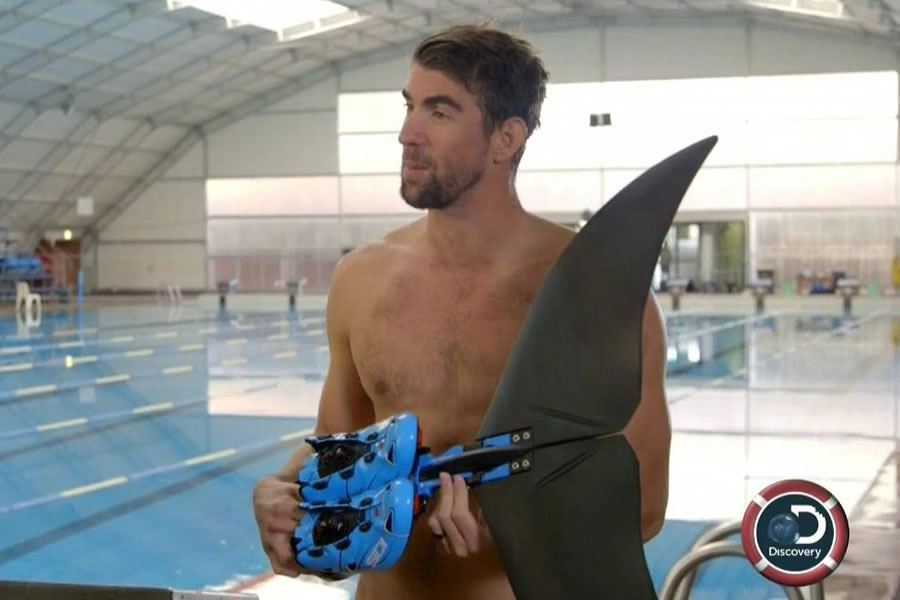🇺🇸 How Much Do Good Genetics Benefit Professional Swimmers… and Finswimmers?

There’s a wide variation of athletes with different body types who have found success as professional swimmers. However, there’s an obvious correlation between most swimmers’ physiques at a competitive level in international events, with most sporting tall, toned muscular bodies.
For instance, Michel Phelps, in particular, has exceptional genetics where swimming is concerned. He’s tall, slender, yet muscular, and those attributes undoubtedly played a part in helping him secure a title as the most successful Olympian of all time. As such, if you were inclined to participate in betting and swimming took your fancy back then, Michel Phelps would have been your top pick.

Effect on Performance
In his prime, Phelp’s tended to be the favourite on the majority of online betting and for very good reason. Punters who backed him to win were rewarded time and time again. Even at the start of his career, Pehlp’s defied the odds to start an era in which total domination was obvious.
Relive the most amazing relay in Olympic history. #TheGreatestRace is streaming now on Peacock! 🏊♂️ https://t.co/58NGtOOO7W pic.twitter.com/VmRcMRUN8K
— Peacock (@peacockTV) June 10, 2021
(Some of Phelp’s races are considered legendary)
Furthermore, research supports the notion that specific physical characteristics can increase an athlete’s power to wade through water.
However, it’s crucial to note talent is not linked to genetics and cannot be inherited. Instead, talent is a separate division shaped by the upbringing and environment in which a child grows. For instance, a supportive and encouraging family, training, and coaching determine a person’s talent.
Therefore, while a person may be knowingly or unknowingly genetically gifted, those genetics are only worthy in athletics, such as swimming, if they are realised, nurtured, and tested.
Athletic Ancestors
There are numerous examples of families birthing athletes who go on to fill their shoes as successful sports professionals.
For example, Gary Hall Junior, a US swimmer, his father and uncle joined the Olympic swimming team many times and won numerous medals. Moreover, Gary’s grandfather was also part of the national swimming club in the US.
In this instance, Gary was gifted with a combination of genetics from his family. And an upbringing from elders who have undergone the training, commitment and endurance needed to succeed as a pro swimmer.
Some misinterpret that people are born swimmers, that it’s in their blood, particularly in families renowned for their athletic achievements.
But as mentioned previously, talent is conditioned based on the child’s upbringing. And those with ancestors in athletics are often fortunate to be bestowed the knowledge and drive that made the older generation successful in sport.
For the defining genetics which are conducive to aiding aspirational swimmers be the best, see below:
Height
Most of the swimmers that dominate the Olympic pool are tall. The average height of an Olympic swimmer finalist is 6 ft 2 inches for men and 5 ft 9 inches for women.
Height offers swimmers a distinct advantage in the pool because they can elongate their bodies through each stroke and swiftly move from one end of the pool to the other.
Here are a few professional male and female swimmers and their heights;
Nathan Adrian 6 ft 6 inches
Kliment Kolesnikov 6 ft 5 inches
Michael Andrew 6ft 5 inches
Simone Manuel 6ft 1 inch
Sarah Sjostrom 6 ft
Katie Ledecky 6 ft
Additional advantages include taller people having other larger body parts that serve them during swimming, like longer hands and feet.
Body Measurements
Besides height, variations in the size of a person’s limbs also influence whether an individual will succeed in swimming professionally.
For instance, in the pool, those with a lengthy wingspan are likely to have an advantage over their competitors because they can reach much further and pull more water per stroke. In turn, gaining more momentum and covering more distance.
Research conducted by Jonty Skinner, a former USA National Team coach, supports the theory that the size of limbs plays a prominent role in determining an athlete’s potential in the pool.
For instance, he discovered, swimmers with arms that are longer than expected for their height do better in long-axis strokes such as backstroke.
Whereas shorter legs are ideal for giving swimmers more kick power in a swimming competition.

Center of Mass
While swimming, athletes have a centre of mass where the body balances on the water.
The closer a swimmer’s centre of mass is to their lungs (the centre of floatation), the easier it is for them to float while swimming.
As such, a swimmer’s centre of mass should be positioned close to their centre of floatation.
Double Jointed
In the quest to find the best swimmer, another part of genetics that will give athletes an advantage during a swimming contest is their inherent flexibility.
For example, rotating the body while conducting a long axis stroke through the water is a lot easier when a swimmer has flexible shoulders.
Plus, flexible ankles are also a beneficial physical asset for swimmers, giving their foot flipper-like qualities to increase forward velocity in the pool.
While flexibility is a trait that can be obtained genetically, it is also something that athletes can improve through stretching exercises.
Although, some youngsters are gifted with a swimmer’s body, which entails the above attributes, plus athletic and supportive parents to help them reach their full potential as an athlete. This shouldn’t discourage keen swimmers from aspiring to reach their goal to attain a successful career as a swimmer.
Because mental strength such as confidence, determination and excellent work ethic also play a significant role in ensuring a swimmer succeeds.
Once you’re physically capable of winning a gold medal, the rest is 90 percent mental. Patti Johnson
What would happen if a professional swimmer like Michael Phelps competes against a great white shark, using a monofin and finswimming technique? In 2017 during the “Discovery Channel Shark Week” this event was held
Last Updated on December 18, 2021

